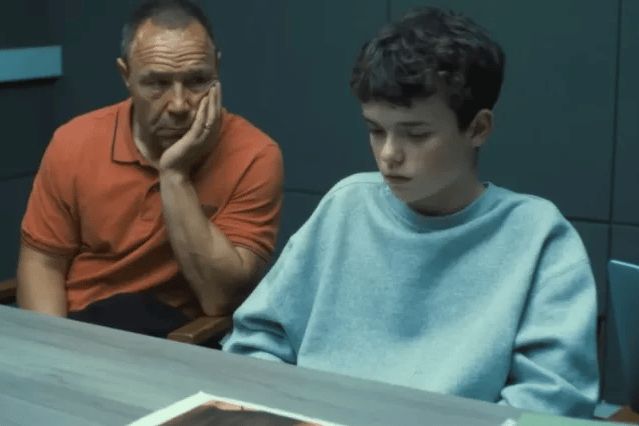
This post contains spoilers.
Watching the awkward mannerisms of 13-year-old Jamie Miller in the new British crime drama, Adolescence, was like watching either of my own teen boys, or one of their friends, on any given day.
The range of dialogue, from barely audible grunts to enthusiastic, almost-childlike babble, the hand-fiddling, the switch in persona from little boy to young adult – Jamie could be any of our boys.
Lead actor, Owen Cooper's performance as Jamie is phenomenal. Disconcertingly so. Because Jamie, an ordinary boy from an ordinary family, has been arrested for murdering a female classmate.
Watch: Adolescence trailer. Article continues after the video.
The four-part series follows Jamie's father, Eddie—played masterfully by Stephen Graham—as he grapples with the horrifying truth: the little boy he loves so dearly has committed an unspeakable crime.
We watch with seat-shuffling discomfort as Stephen and his devastated wife, Manda (played by Christine Tremarco) ask themselves where they went wrong, if they went wrong.
How did their son, who wet his pants in fear as the police tore through the family home, end up stabbing a young girl to death?






























































































